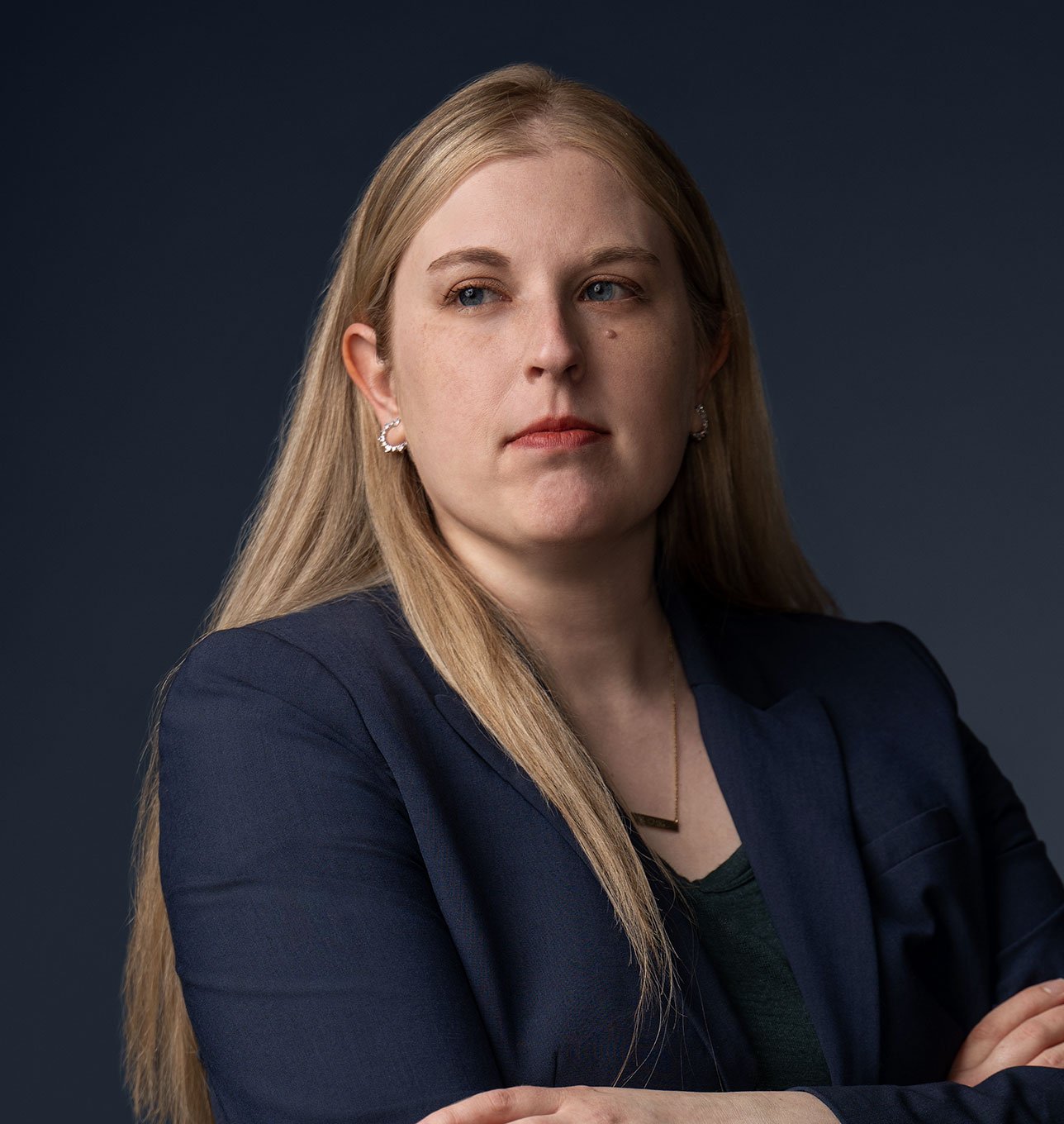CFPB Proposes Latest Rule in Initiative Against So-Called “Junk Fees”
On January 24, 2024, the Consumer Financial Protection Bureau (“CFPB”) launched the latest salvo in its war against so-called “junk fees” by issuing a proposed rule that would prohibit financial institutions from charging consumers insufficient funds fees on transactions that are instantaneously, or nearly instantaneously, declined (the “Proposed Rule”).1 The Proposed Rule is unique and noteworthy for two reasons: first, because the Proposed Rule would proactively ban a fee that the CFPB acknowledges very few financial institutions currently charge; and second, because it is only the second rulemaking that relies on the CFPB’s authority to promulgate rules to prevent abusive acts or practices under the Consumer Financial Protection Act (“CFPA”). In this Legal Update, we discuss the key aspects of the Proposed Rule.
Background
If a consumer makes or attempts to make a payment, or withdraws or transfers money from an account at a financial institution, the financial institution may charge the consumer an insufficient funds fee (sometimes referred to as an “NSF fee”) if the consumer’s account does not have sufficient funds for the financial institution to complete the transaction. As the CFPB noted in its Proposed Rule, financial institutions currently charge NSF fees almost exclusively when an electronic Automated Clearing House (“ACH”) transaction or check is declined. ACH and check transactions are not processed in real time, and are not capable of being declined immediately if there are insufficient funds in the consumer’s account at the time the consumer initiates a transaction—it may be hours or days before the bank attempts to process the transaction. This is in contrast to transactions that involve an attempted withdrawal from the consumer’s account using an ATM machine, or a debit payment presented to a retailer at the point of sale, where a transaction is typically declined instantaneously. The CFPB noted that very few financial institutions currently charge NSF fees on these types of transactions that are declined in real time. Where a financial institution does charge a fee, the CFPB asserts that the average cost to a financial institution of handling NSF transactions is half a cent per transaction, while the median NSF fee charged by a financial institution is $32.
Over the past two years, the Biden-Harris Administration (the “Administration”), CFPB, and Federal Trade Commission (“FTC”) have maintained a strong focus on restricting and eliminating fees and charges they have labelled “junk fees.”2 The Administration highlighted several such “junk fee” federal agency actions in October 2023, with a particular focus on the CFPB’s and FTC’s efforts.3 The Proposed Rule is the most recent of these efforts, announced only a week after the CFPB announced another “junk fee”-related rule on overdraft fees.4
The Proposed Rule
Under the Proposed Rule, financial institutions would be prohibited from charging an NSF fee on transactions which are instantaneously or nearly instantaneously declined (the “covered NSF fees”)—in other words, those declined with “no significant perceptible delay” to the consumer. These include debit card purchases, ATM withdrawals, and peer-to-peer payments. The Proposed Rule would apply to “covered financial institutions,” as that term is defined in the CFPB’s Regulation E, including banks, credit unions, and certain peer-to-peer payment companies that hold an “account” belonging to a consumer. The Proposed Rule defines an “account” consistently with Regulation E, to include consumer-purpose asset accounts held by a financial institution, such as checking and savings accounts, and prepaid accounts. The Proposed Rule’s definition of an NSF fee is specifically limited to a charge assessed by a financial institution for declining a consumer’s attempt to withdraw, debit, pay, or transfer funds from their account due to insufficient funds. Thus, the Proposed Rule would not apply to overdraft fees that may also be charged when a consumer’s account has insufficient funds, but where the transaction is not declined by the financial institution.
Notably, the Proposed Rule would not prohibit the vast majority of NSF fees currently charged to consumers because, according to the CFPB, most financial institutions charge NSF fees only on transactions that are not instantaneously or nearly instantaneously declined. The CFPB stated that it issued the Proposed Rule as a “proactive step” and “preventive measure” because, according to the CFPB, technological advances may allow financial institutions to decline more transactions in real time and, if the CFPB’s recently proposed overdraft fee rule goes into effect,5 financial institutions may seek to impose fees on instantaneous or near-instantaneous declinations.
The Proposed Rule would deem charging NSF fees on instantaneously declined transactions an abusive act or practice, in violation of the CFPA. Under the CFPA, a act or practice is abusive if it (1) materially interferes with the ability of a consumer to understand a term or condition of a consumer financial product or service; or (2) takes unreasonable advantage of: (a) a lack of understanding on the part of the consumer of the material risks, costs, or conditions of the product or service; (b) the inability of the consumer to protect the interests of the consumer in selecting or using a consumer financial product or service; or (c) the reasonable reliance by the consumer on a covered person to act in the interests of the consumer.6 The Proposed Rule relies solely on the CFPB’s authority under the CFPA to prohibit abusive acts or practices as its legal basis.
The CFPB specifically alleged in its proposal that charging an NSF fee on an instantaneously or near-instantaneously declined transaction would take unreasonable advantage of a lack of understanding on the part of the consumer of the material risks, costs, or conditions of the product or service. The CFPB asserts that a financial institution takes unreasonable advantage of this lack of understanding because the fee is not provided in exchange for a service and imposes a disproportionate cost to the consumer (approximately $32) relative to the cost to the financial institution (half a cent).
In addition, the CFPB cited four factors that led it to conclude that charging NSF fees on nearly instantaneously declined transactions constitutes taking unreasonable advantage of consumers’ lack of understanding. First, the CFPB asserted that a transaction that is rejected because of insufficient funds entails material risks or costs because consumers are charged a fee. Second, the CPFB argued that if consumers derive minimal or no benefit from the transaction, then, in its view, it is reasonable to believe that consumers who still proceeded with the transaction did not understand the risks or costs. The CFPB reasons that, with respect to covered NSF fees, the consumer would experience a cost (the NSF fee) but derive no benefit because the transaction would be instantaneously declined. Thus, according to the CFPB, a consumer who knows their account has insufficient funds would never initiate a transaction that could result in a covered NSF fee.
Third, the CFPB asserted, without necessarily citing a specific basis for this statement, that a financial institution has “no reason for imposing such fees other than reaping a windfall, because they could simply refuse to authorize the transaction instantaneously” at a very low cost. Last, the CFPB stated that charging a covered NSF fee “would constitute unreasonable advantage-taking because covered financial institutions are profiting directly from consumer hardship rather than from providing useful services to avoid or alleviate it.”
Takeaways
The proactive nature of the Proposed Rule is unusual for a CFPB rulemaking. The CFPB acknowledges in the preamble to the Proposed Rule that it is uncommon for financial institutions to currently charge NSF fees on instantaneously declined transactions. Instead, the CFPB asserts that the Proposed Rule is necessary because of the speculative possibility that financial institutions could seek to charge such fees in the future. This stands in contrast to most prior CFPB rulemakings, where the Bureau has instead reacted to existing market practices or conditions.
Perhaps even more interestingly, the Proposed Rule is only the second rule issued by the CFPB that relies on the CFPB’s authority to prohibit abusive acts or practices, and—if finalized—would be the first rule to exclusively rely on that authority. The CFPB did not address its reasons for only asserting that charging covered NSF fees were abusive, and not unfair as well. For an act or practice to be “unfair,” the act or practice must cause, or be likely to cause, substantial injury to consumers, and that injury must not be reasonably avoidable or outweighed by countervailing benefits to consumers or competition.7 Perhaps the CFPB believes that it would be difficult for the Bureau to argue that charging the covered NSF fees causes, or is likely to cause, substantial injury that is not reasonably avoidable. Nevertheless, the Proposed Rule indicates that the CFPB is willing to not only use its rulemaking authority to prohibit abusive acts or practices, but also to take an expansive view of that authority. As a result, even though the scope of the Proposed Rule is limited to what is currently a rarely charged fee, the Proposed Rule could have broader implications for future CFPB rulemakings and determinations of whether an act or practice is “abusive” for purposes of the Dodd-Frank Act.
Despite the unique aspects of the Proposed Rule, it is unsurprisingly part of the CFPB’s trend of targeting so-called “junk fees.” The CFPB has kept true to its January 2022 announcement launching its initiative against “junk fees,” in which the Bureau stated it would use its authority to take action to reduce fees in the consumer finance market.8 With a proposed rule on overdraft fees issued a week earlier—and an expected forthcoming final rule on credit card late fees—the CFPB has now proposed rules on all three types of fees the Bureau called out in that announcement.
The CFPB requested comment on several specific aspects of the Proposed Rule, including the definitions identified in the rule, whether the proposal is broad enough to address potential consumer harm, and—although not directly related to the Proposed Rule—whether there are aspects of the 2020 rulemaking rescinding certain provisions of the CFPB’s payday lending rule (which also relied, in part, on the CFPB’s authority to prohibit abusive acts or practices) that warrant clarification with respect to the CFPB’s interpretation of abusive and unfair conduct. Comments on the Proposed Rule are due on March 25, 2024. If finalized, the rule would take effect 30 days after the final rule is published in the Federal Register.
1 CFPB, Fees for Instantaneously Declined Transactions, 89 Fed. Reg. 6,031 (Jan. 31, 2024).
2 For more details on the CFPB’s and FTC’s prior rulemakings on “junk fees,” please see our Legal Updates and blog posts, including: Consumer Financial Services UDAAP Round-Up Spring Update; CFPB Junk Fees Special Edition; CFPB Targets Credit Card Late Fees as Junk Fees; Proposes Significant Reduction in Safe Harbor for Card Issuers; and “Junk” Fees and Deceptive Reviews: US FTC Begins Rulemakings.
3 The White House, Biden-Harris Administration Announces Broad New Actions to Protect Consumers From Billions in Junk Fees (Oct. 11, 2023), https://www.whitehouse.gov/briefing-room/statements-releases/2023/10/11/biden-harris-administration-announces-broad-new-actions-to-protect-consumers-from-billions-in-junk-fees/.
4 CFPB, CFPB Proposes Rule to Close Bank Overdraft Loophole that Costs Americans Billions Each Year in Junk Fees (Jan. 17, 2024), https://www.consumerfinance.gov/about-us/newsroom/cfpb-proposes-rule-to-close-bank-overdraft-loophole-that-costs-americans-billions-each-year-in-junk-fees/.
5 CFPB, Overdraft Lending: Very Large Financial Institutions (Jan. 17, 2024), https://consumerfinance.gov/rules-policy/rules-under-development/overdraft-lending-very-large-financial-institutions-proposed-rule/.
8 CFPB, Consumer Financial Protection Bureau Launches Initiative to Save Americans Billions in Junk Fees (Jan. 26, 2022), https://www.consumerfinance.gov/about-us/newsroom/consumer-financial-protection-bureau-launches-initiative-to-save-americans-billions-in-junk-fees/.



